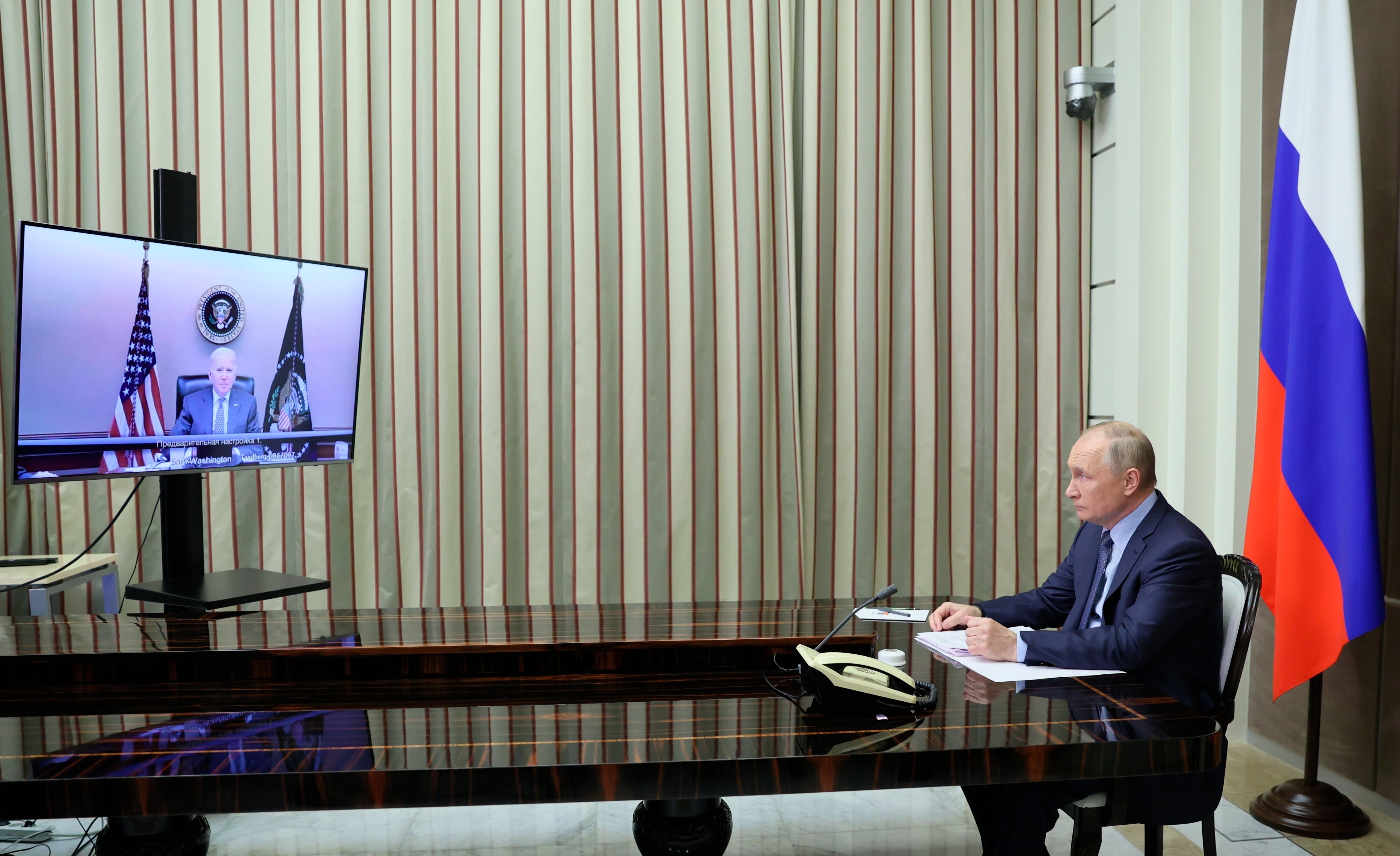WASHINGTON ― In talks with Russia on Monday, U.S. officials raised the possibility of limiting missile deployments in Eastern Europe and the size and scope of its military exercises, if Russia reciprocates, U.S. Deputy Secretary of State Wendy Sherman told reporters afterward.
Sherman met with Russian Deputy Foreign Minister Sergey Ryabkov on Monday in the first of three sets of bilateral meetings set for this week. NATO talks with Russia follow, and then talks between Russia and the Organization for Security and Cooperation in Europe ― which are expected to touch on the American proposals.
“On missile deployments and exercises, we put some ideas on the table,” Sherman told reporters on a State Department-organized conference call. “I’m not going to go through any specifics. We will of course be consulting with our partners and allies over the next few days about some of those ideas.”
Sherman stressed that the talks were preliminary and not detailed negotiations. She also reiterated the Biden administration’s promise that no decisions would be made in the talks without Ukraine or NATO.
However, the U.S. on Monday made clear to Russia that it is “open to discussing certain missile systems,” along the lines of the defunct Intermediate-Range Nuclear Forces Treaty with Russia, said Sherman. The Trump administration withdrew from the treaty in 2019, five years after the U.S. first accused Russia of violating it with its 9M729 ground-launched cruise missile.
Since then, the U.S. Army announced in 2020 its selection of two ground-launched, midrange missiles which would have been prohibited under INF. Lockheed Martin won a sole-source contract worth $339 million to design, develop, and deliver the Mid-Range Capability prototype to be fielded in fiscal year 2023, based on the Navy SM-6 and Tomahawk missiles.
In October, the U.S. Army, unbound by INF, tested its Lockheed-made Precision Strike Missile missile at a range beyond 499 kilometers.
RELATED

Russia has previously expressed concern with Washington’s reactivation of the U.S. Army’s 56th Artillery Command in Germany, which had been inactivated in 1991 after the treaty was signed.
Among Russia’s demands ahead of the talks, it’s seeking guarantees that neither side will deploy intermediate or shorter-range missiles close enough to hit the territory of the other side.
Tom Karako, director of the Missile Defense Project at the Center for Strategic and International Studies, said that the treaty’s lapse, because of Russian violations, gives the U.S. useful new options to deter China, and reviving it would be “a fantastically bad idea.”
“The treaty is dead, let it rest in peace,” Karako said, adding: “There are of course some arms control measures here we could pursue, such as a non-binding, mutual commitment to deploy some minimal number of intermediate range strike systems in the vicinity of a common strategic competitor, namely China.”
Meanwhile, U.S. officials have said there is no chance the U.S. will reduce its military presence or arsenal in Eastern Europe as Russia has demanded. Sherman said the U.S. side on Monday was “unequivocal” in its rejection of Russia’s demand that NATO will not further expand eastward, and she reiterated that Washington has ruled out removing U.S. troops and weapons from Eastern Europe.
“We did not have discussions about American troop levels,” she said. “I don’t think that is what is on the table. That’s not anticipated. That’s not a topic of conversation.”
RELATED

Sherman said Russia could deescalate by withdrawing the 100,000 troops it has massed along Ukraine’s border or at least explain the exercises it claims it is conducting. Russia did neither on Monday.
“Russia indeed said to us, as they said publicly, they do not intend to invade, these are just maneuvers and exercises,” Sherman said, adding that the Russians “can prove that, in fact, they have no intention by deescalating and returning troops to barracks.”
She added, “One does not normally send 100,000 troops to a border just to sort of exercise. It’s quite extraordinary and it’s all on the border with Ukraine. So clearly it was to send a decisive message.”
While the Biden administration has floated the possibility of incremental shifts in U.S. force posture in Europe, they have also threatened Russia would be hit with severe sanctions should it invade Ukraine.
Those restrictions would reportedly include, beyond energy and consumer goods, Russia’s ability to obtain integrated circuits, and products containing integrated circuits. The impact could reportedly extend to aircraft avionics, machine tools, smartphones, game consoles, tablets and televisions.
But those plans, which could impact allies economically as well, were not set, as of Monday. When asked, Sherman said, “We are in intensive discussions with partners and allies about export controls and working through the best way to move forward, and finding a lot understanding, agreement and interest in pursuing them.”
Joe Gould was the senior Pentagon reporter for Defense News, covering the intersection of national security policy, politics and the defense industry. He had previously served as Congress reporter.





